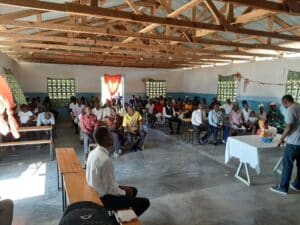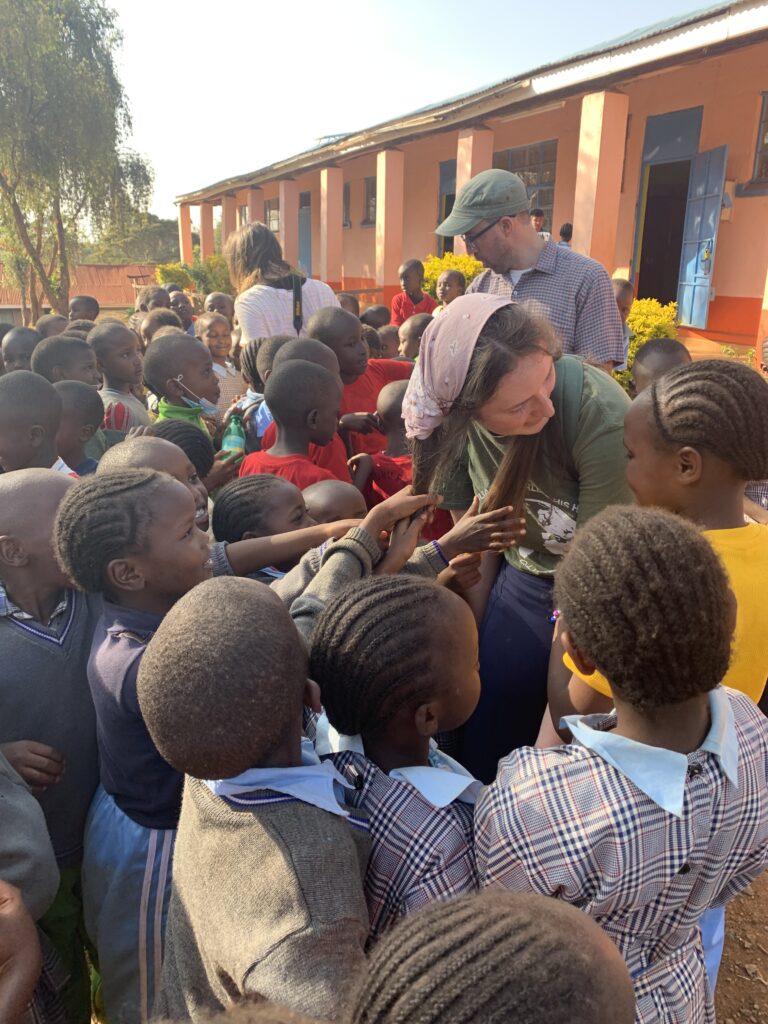A Good Story
Every good story has two key aspects. A good story has a conflict to overcome, and a hero that overcomes it. We all love a good hero.
The war on poverty is like that. It’s a conflict that needs to be overcome and it has a hero. But all too often we think the hero of the story is us.
It’s not.
Here’s a true story that illustrates what I’m talking about.
I was invited to a small rural community in Honduras by a safe water organization. The purpose of the visit was to evaluate the leadership and determine if 410’s development model would be welcome. I was accompanied by a couple donors that wanted to see how we vetted communities and community leaders.

It was a typical rural Honduran community. The community was very poor with no school, no economic activity, and little hope or opportunity.
It did, however, have a small safe-water project recently completed by the organization that invited us.
Meeting Santos
While walking through the community, we visited the home of a middle-aged man named Santos. He lived with his wife and three children in a ramshackle home with a dirt floor and a curtain separating its two rooms. Santos welcomed us into his home.
Our conversation centered around his family and his community. I love to find out what people like about living in their community. What strengths and gifts do they have? Is there anything that they do so well that they could teach others? These conversations help them, and us, see beyond the obvious needs and focus on their strengths and gifting.
During the conversation, we learned that Santos was the custodian of the local water project. Although the water project paid him to oversee it, the gap between Santos and the poorest members of his community was not very wide.
After a warm and friendly visit, we thanked Santos and his wife for their hospitality, and we continued our walking tour of the community.
Twenty Bucks

Later that night, I was talking with the two donors that accompanied me and one of them confessed.
“I know you’re not going to like this, but I gave Santos twenty bucks.”
“Really…? Why?” I replied, struggling not to show my displeasure.
“Yeah, well… I know what you’re going to say, but he needed it. It was just 20 bucks!”
The Problems
So what are the problems with the twenty dollar gift?
It creates a real possibility that the next gringo to visit the community may likely be asked for a handout and to see the affluent North American as the provider.
And, still more insidious, a husband and father to feel emasculated in front of his family.
A little more thought… a little less expediency… and the local Church could have emerged as the hero.
I explained to my well-intentioned friend that there is a healthy way to help, and an unhealthy way to help.
It starts with separating what we give, and how we give it, from our need to feel good about ourselves. In this case, he missed a priceless opportunity to allow the local church to be the Church.
Instead of an “Andrew Jackson” handshake, he could have found out where Santos attends church. We could have talked to the leaders and the pastor of that church and allowed them to navigate help for Santos’s family.
Another important point here… Santos had a job! He wasn’t the neediest in the community and the local church knows that better than anyone. He was being paid by the community to manage the water project – a place Americans commonly visit.
How will the community feel when (not if) they learn that Santos accepted money from people visiting his home and the water project?
Making the Local Church the Hero

In all we do, we should insist on making the local Church the hero whenever possible. Notice I said “Church” (big-C). In our context, walking alongside a single church in a community can create division and jealousy.
That’s why we work hard to unify the local churches through pastor’s fellowships, participation in Leadership Councils, and integrating church-led discipleship into the ‘humanitarian’ programs.
The results are incredibly encouraging, and in some cases amazing. Pastors and Christian leaders put aside their differences and work together. Imagine that! Churches fundraise for each other. Pastors teach in each other’s churches.
Churches become—collectively—the hub of the development effort and the voice of the people. The hero…
-Kurt Kandler
In his book – If You Really Want to Help – Kurt lays out a fresh blueprint for redefining the war on poverty, how to win it, and how we fight the battle together. His book will be released February 28, 2023 and is available for pre-order here.




